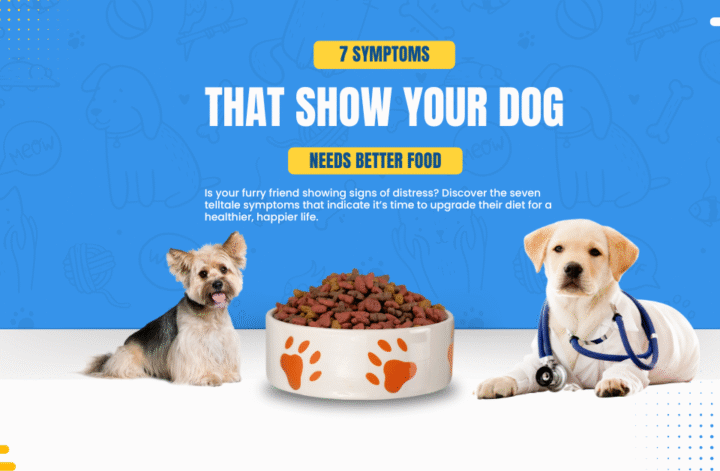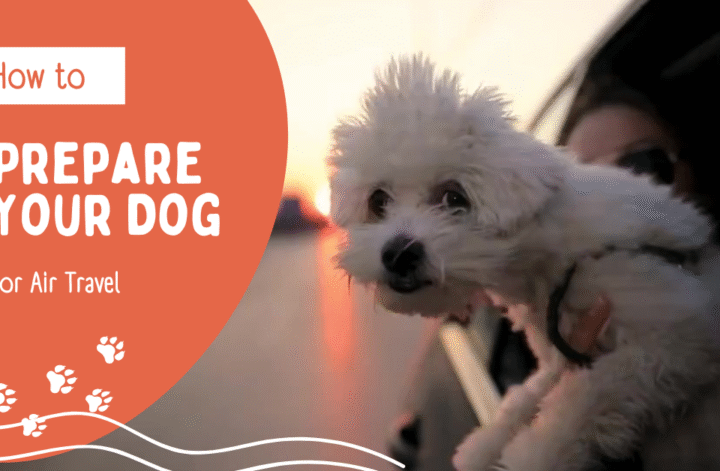Details: You shower your dog with love, toys, and daily walks. But what if, all that attention notwithstanding, your furry best friend is silently suffering from a nutrient deficiency? Most
Commercial dog foods are labeled as “complete and balanced,” but not all of them deliver the correct quality or amount of nutrients your dog actually needs. And if you don’t pay attention, the signs of nutritional deficiency can be simple to overlook… until it’s too late.
Below are 7 shocking symptoms your dog could be nutrient deficient —
along with what you need to do about it before it becomes a serious health problem.
1. Dry, Itchy Skin & a Dull, Brittle Coat
The coat of a dog is a reflection of its inner health. If your dog’s coat appears dull, dry, or brittle, or if it constantly itches and flakes, it could be because of the lack of essential fatty acids (particularly omega-3s), zinc, or vitamin E.
Why it matters: These nutrients support skin barrier function, lower
inflammation, and enhance fur shine and strength.
What to do:
– Supplement with a good-quality fish oil or flaxseed.
– Feed sardines or salmon (cooked, boneless).
– Select dog foods containing skin-supportive nutrients such as biotin, vitamin A, and zinc.
2. Excessive Shedding or Bald Patches
Seasonal shedding is natural. But ongoing or abnormal hair loss, such as bald patches or asymmetrical thinning of the fur, is a red flag that something’s amiss, usually a protein imbalance, low biotin, or even thyroid issues due to inefficient nutrient absorption.
What to do:
– Provide high-quality animal protein (lamb, chicken, turkey, beef).
– Make sure the food is AAFCO-certified and contains vitamins A, B7 (biotin), and copper.
– Supplement with a multivitamin formulated for coat health.
3. Low Energy, Lethargy & Weakness
A typically energetic pup that becomes lazy or drowsy suddenly
might not be “tired”; they could be low in B vitamins, iron, or amino
acids, which are essential for red blood cell formation and energy metabolism.
What to do:
– Provide organ meats such as liver (in moderation).
– Supplement with leafy greens such as spinach (chopped and cooked)
or spirulina powder.
– Use a B-complex supplement with vet advice.
4. Digestive Problems (Gas, Diarrhea, Constipation)
Loose stools, gas, or abnormal digestion may mean your dog is not
getting nutrients or lacks dietary fiber, digestive enzymes, or probiotics.
What to do:
– Add pumpkin or steamed sweet potato for fiber.
– Add probiotic-rich foods such as plain yogurt (in small amounts).
– Use digestive enzyme supplements or change to a more
digestible protein source (such as lamb or duck).
5. Licking Dirt, Rocks, or Foreign Objects (Pica)
If your dog has the weird habit of eating dirt, rocks, cloth, or even feces,
it’s not only disgusting. It may be a mineral deficiency in iron, calcium, or magnesium.
What to do:
– Have a vet blood test done to determine anemia or mineral imbalance.
– Supplement with natural sources such as bone broth or eggshell powder for calcium.
– Don’t over-supplement — certain minerals are toxic in large amounts.
6. Ongoing Illness or Sluggish Healing
When your dog regularly becomes ill, has a poor immune response,
or is sluggish to heal minor injuries or infections, they likely are deficient
in vitamin C, E, or selenium, all important antioxidants promoting immune defense.
What to do:
– Add fresh fruits and vegetables (blueberries, spinach, carrots)
in amounts that are safe for dogs.
– Use turmeric or antioxidant canine chews for additional support.
– Keep your dog’s weight healthy — obesity can also weaken immunity.
7. Behavioral Changes: Anxiety, Restlessness, or Aggression
As with humans, mental health in dogs is impacted by poor nutrition.
Lack of tryptophan (precursor to serotonin), magnesium, or B vitamins can
cause anxiety, hyperactivity, and even aggression.
What to do:
– Feed turkey (high in tryptophan), oats, or cottage cheese.
– Make sure your dog’s food doesn’t contain a bunch of fillers and artificial stuff.
– Talk to your vet about natural calming supplements.
Don’t Guess — Get It Checked! Your dog may not be able to speak, but their body is always communicating. Don’t brush off scaly skin, strange cravings, or unexpected crashes as “getting” older—they may be indicators of underlying deficiencies. Keep in mind that not all dog foods are equal. Be a purist. Rotate the ingredients, add superfoods, and supplement conscientiously. Your dog’s long-term health, energy, and well-being rest on what goes into their bowl and what doesn’t go into it.
Find expert tips and the most current information on pet care, training, health, and more.
Stay in the know with all things pets at
FAQs
What are the most prevalent indicators of nutrient deficiency in dogs?
The most apparent symptoms are a dull coat, flaky skin, heavy shedding, lethargy, strange appetites (such as dirt or stones), gastrointestinal problems, and behavioral issues such as anxiety or aggression. These tend to signal deficiencies in key vitamins and minerals like omega-3s, iron, zinc, and B-complex. If you see one or more of these signs, it’s time to take a close look at your dog’s diet.
Can a dog be undernourished with high-quality dog food?
Yes! Even premium dog food can be lacking if it’s not specifically designed for your dog’s individual requirements, breed, or life stage. Overprocessing, fillers, and rotation issues can also decrease nutrient availability. A “complete and balanced” label does not necessarily mean your dog is getting everything it requires.
How can I check whether my dog is undernourished?
A veterinarian may perform a nutritional blood panel or suggest a hair tissue mineral analysis to test for deficiencies. These may reveal underlying imbalances not evident from physical symptoms alone. Early diagnosis is the key to avoiding long-term health problems.




